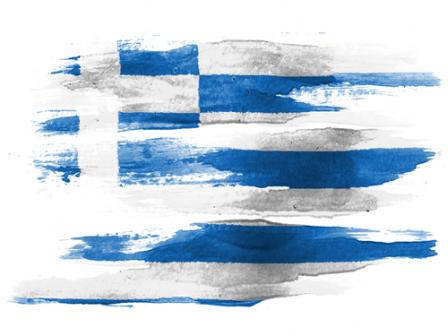By SARA SJOLIN, Market Watch
The Greek antiausterity government is stuck between a rock and a hard place: The unsavory options appear to be fairly straightforward: agree to an unwanted reform program or risk defaulting on a massive debt load and exit the eurozone.
Presently, talks between the Greek government and its international creditors have entered a “crucial phase,” as Athens rapidly runs out of cash and as its current bailout is set to end in late June, with hefty debt repayments coming up in July and August, UBS economists said in a note on Monday
“The time pressure is enormous,” UBS said. “Failure to reach a deal over the coming weeks would likely mean default and might put Greece on a slippery slope that could lead to ‘Grexit’.”
But a so-called Grexit—shorthand for Greece leaving the currency union—isn’t the only possible ending to the Greek debt drama, according to UBS. Overall the bank envisions four scenarios for the road ahead:
Scenario 1: Greece and its lenders agree on a reform program, 7.2 billion euro ($8 billion) worth of bailout funds are unlocked and a Grexit and default are avoided.
This scenario also assumes the two sides will reach a deal on a follow-on program, or third bailout, when the current aid scheme ends in June, allowing Greece to stay in the eurozone. This is still UBS’s base-case scenario, although they warned that “risks have risen.”
“Before we reach that point, the negotiations might well stay tense, and involve more brinkmanship and growing concerns over default and the stability of the banking system; the markets might well also turn more nervous in the meantime,” the economists said.
Scenario 2: Greece defaults, but stays in the eurozone.
Negotiations between Athens and the lenders proceed very slowly and the government struggles to service its debt and pay wages and pensions at the same time. Eventually, Greece defaults on parts of its debt, but a goodbye to the eurozone can still be avoided if the two sides reach a belated deal.
Whether a default leads to an outright exit depends on several factors, according to UBS: The type of government debt that goes into default; the lender; the European Central Bank’s reaction; and the length of the default.
Scenario 3: Greece defaults and quickly leaves the eurozone.
If the reform talks break down a default will seem inevitable. When it becomes clear negotiations have collapsed for good, the ECB would have to cut the emergency liquidity assistance, known as the ELA, to the banks, likely to create a run on deposits and force the government to impose capital controls.
“The liquidity situation of the banking sector would nevertheless worsen so dramatically that, in order to avoid a collapse of the banking system, the government would have no choice but to introduce its own currency,” the UBS economists said.
They said this scenario could theoretically also happen if the Syriza-led coalition manages to hammer out a reform deal, but fails to secure a third bailout over the summer, which could lead to a default in July, August or later.
Scenario 4: IOU’s become parallel currency, Greece eventually defaults and Grexit materializes
As Athens is running out of cash, the government could start to use IOUs for domestic payments instead of euros. UBS said the government may already have started to issue those to corporate suppliers and that this approach could be extended to public section salaries and pensions.
The more notes that are issued, the more they get integrated in the financial system. Banks could start to clear payments in them. Businesses and citizens would increasingly use the IOUs to pay taxes and gradually they would end up as a parallel currency. All the while, euros are flowing out of the country.
“In the absence of a deal with international partners, default and the introduction of capital controls would follow, prompting the ECB to cut off ELA to the Greek banking sector, and forcing the government to re-introduce a Greek currency—just as in Scenario 3,” UBS’s economists said.









